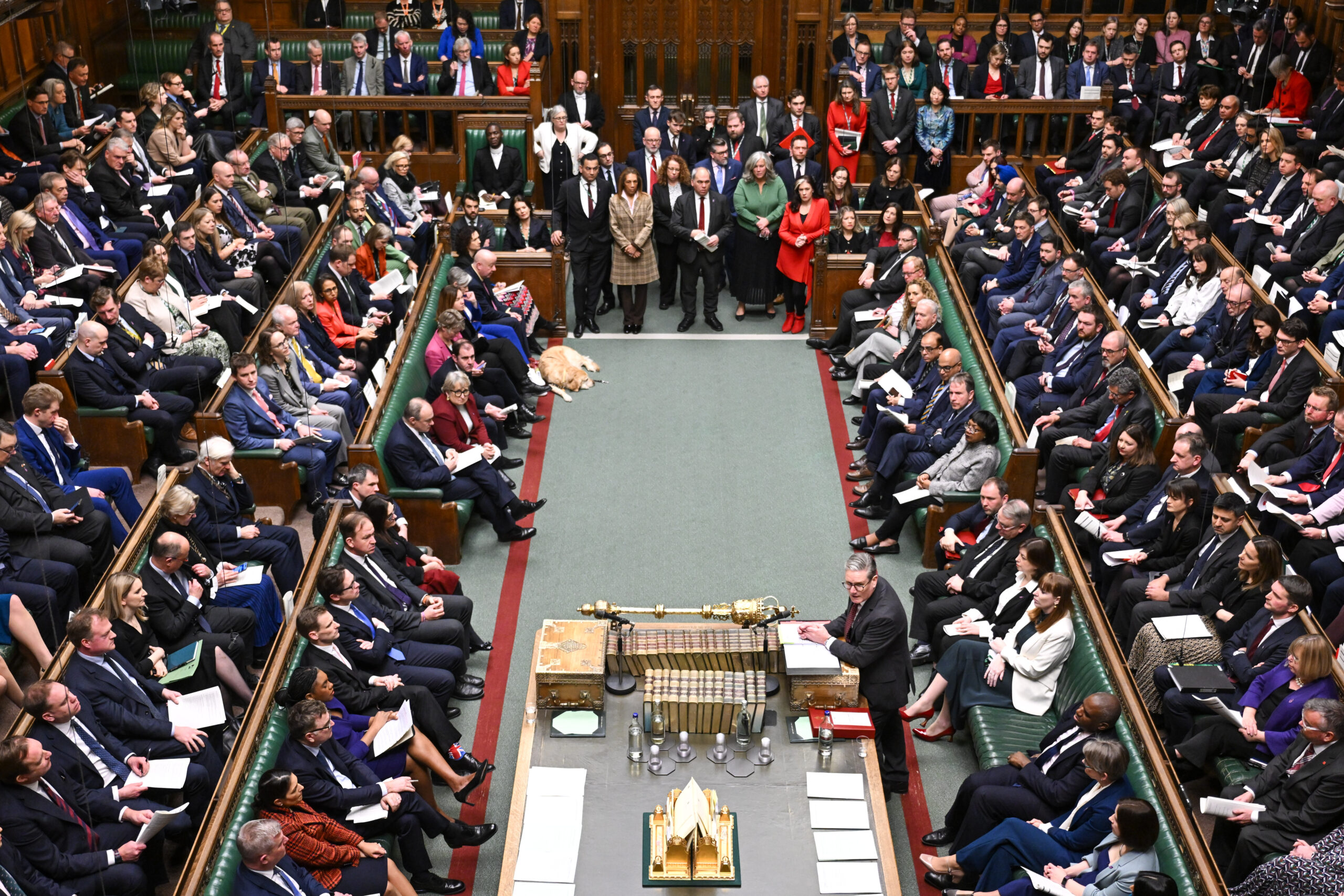
The Labour government has introduced significant plans for reform in education and healthcare, sparking heated debates across Parliament in this week’s PMQs. This article takes a look at the Children’s Wellbeing and Schools Bill and plans to rebuild the NHS, two key policy initiatives shaping the national agenda.
The Schools Bill
The Children’s Wellbeing and Schools Bill was introduced by Labour in December 2024 and is currently in the Committee Stage. The new government wishes for “the bill to improve the safeguarding of children (in care institutions and schools) and to raise educational standards.” This week, the Leader of the Conservative party Kemi Badenoch grilled the Prime Minister over the detail of the Bill during PMQs.
Badenoch labelled the bill as “an act of vandalism”, before going on to voice her concern over the taxation of the education of children with special needs, possible pay cuts for teachers and cutting pathways to teaching, underlining the removal of single-word Ofsted judgement was obviously intended “so that parents cannot see standards slipping.”
In response, the Prime Minister was keen to point out the work being done for children regarding wellbeing and care, highlighting the “provisions for protecting children, including a provision to stop abusers taking children out of school and a unique identifier to ensure that the whereabouts of all children are known.”
So, what is going on with the changes to school regulation? Clause 44 of the bill revokes the requirement to turn failing schools into academies. In the future, this will be at the discretion to the Secretary of State. The new government intends to create a variation in its approaches towards dealing with failing schools other than “forced academisation”. Labour wants local government-run schools to “benefit from different approaches that suited their circumstances,” creating individual solutions for each school with civil servants, school leaders and local schools alongside their supporting networks.
Teachers could be subjected to a pay cut. The bill wants to introduce a “statutory school teacher pay and conditions framework.”. This could mean that those paid more could be forced to take a pay cut because of the bill. The government later agreed to amend the bill stipulating that “academies only have to adhere to a teacher pay ‘floor’”. Facing mounting pressure, the government changed the bill.
Tory concern that the government is cutting routes to teaching is clear in the bill. Badenoch criticised the implication that “doctors are not sufficiently qualified to teach biology and that an Olympic medallist cannot teach PE.” The bill stipulates that teachers must have “Qualified Teacher Status (QTS)”. Moreover, the PM asserted that wanting qualified teachers is not “extraordinary”.
The Department for Education’s (DfE) decision to remove single word ratings for schools has been present since September. The DfE claim that “one word judgements aren’t working for parents or schools,” deciding to remove the judgements. The Tory Party had failed to mention that the DfE is replacing the system with “School Report Cards” which will rate schools on “quality of education, behaviour and attitudes, personal development and leadership and management.” The DfE wants to empower parents to “compare schools by looking at how they perform in each of these areas”.
Healthcare
While education reforms have sparked debate over safeguarding and standards, Labour’s healthcare initiatives focus on addressing infrastructure challenges and delays. This week the party seemed keen to point out their inheritance of the health care system. Labour emphasised its hospital building plans during PMQs, highlighting projects in Kettering, Huddersfield and Watford hospitals. The PM remarked that there was “deep anger about the delay to the work because of the Conservative’s failure to have a plan.”
One structural problem is concrete used to build some hospitals. Reinforced Autoclaved Aerated Concrete (RAAC) has been identified in 47 hospitals and healthcare buildings, posing “a risk to staff and patients.” RAAC, which has been used for roofing materials, is a serious problem because it is at risk of breaking without warning.
Labour has also ripped up the previous administration’s plans for building new hospitals. The Secretary of State for Health and Social Care, Rt Hon Wes Streeting MP, commented on the state of the NHS: “If I was shocked by the state of this programme, patients ought to be furious. Not only because the promises made to them were never going to be kept. They also desperately need new buildings and new hospitals.”
The Department for Health and Social Care have announced that they will be tackling the problem in three waves:
- Schemes in Wave 1 are expected to begin construction between 2025 and 2030. These schemes include hospitals constructed primarily using reinforced autoclaved aerated concrete (RAAC) and have been prioritised as patient and staff safety is paramount.
- Schemes in Wave 2 are expected to begin construction between 2030 and 2035.
- Schemes in Wave 3 are expected to begin construction between 2035 and 2039.
In comparison with the number previously promised by the Tory party, this will decrease the number of hospitals built. However, professional consensus seems to suggest that Labour’s new reforms are more “realistic” in funding the projects. The delays outlined have been labelled as a “blow” to the NHS as its staff, but the PM responded that “the funding only ever existed in Boris Johnson’s imagination”.
Edited by Elizabeth Strassheim
Image: House of Commons Chamber during PMQs by House of Commons, 2025 // CC BY-NC-ND 2.0



Average Rating